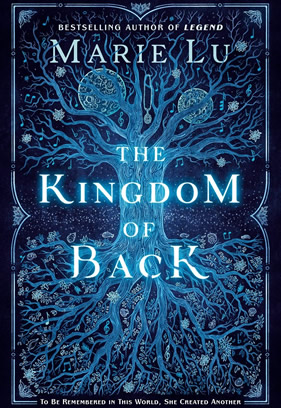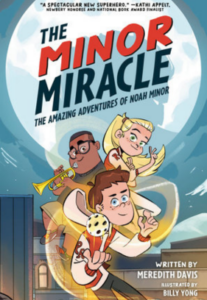Most people have at least a passing knowledge of the brilliant musician Wolfgang Amadeus Mozart. But few know of his sister, Maria Anna (nicknamed Nannerl). Author Marie Lu weaves historical fact with fantasy fiction to tell the story of this equally gifted girl and young woman. The book shows us her struggles and desires in a time when women were far less apt to be remembered by history.
I am going to tell you a story you already know. But listen carefully, because within it is one you have never heard before.
There is no doubt that 8-year-old Maria Anna (Nannerl) Mozart is a wonderfully impressive musician. Her father, Leopold, has pushed her in her keyboard lessons and brought important men to hear her play ever since she showed the slightest hint of talent playing their clavier. And even though Leopold is a hard task master, and frankly, hopes to use the brilliance of his child for his own good fortunes, Nannerl can’t help but crave his attention and approval.
In fact, while playing beautiful music so beautifully, young Nannerl begins to yearn for even more. Would it be possible to escape the inevitable anonymity that is a woman’s place in Salzburg, Austria, of 1759, and somehow leave her mark on the world? Could she become immortal, be remembered by history for the incredible music she can produce? Is there some magic in the world, she wonders, that could make that happen?
However, when younger brother Wolfgang Amadeus—or Woferl as Nannerl affectionately calls him—starts to exhibit some amazing skills of his own, Nannerl’s dream appears even more impossible. Tiny Woferl unknowingly threatens to eclipse her in the eyes of both history and her father.
But one night, as Nannerl once more gives voice to her secret wish, she is heard and answered by a faerie princeling who steps out from the shadows in her little room. Hyacinth is the magical boy’s name, and he claims to be from the faery Kingdom of Back—a mystical land that she and Woferl had made up in bedtime stories. Hyacinth assures her, however, that the magical, upside-down forest kingdom is quite real. And he offers to grant Nannerl her wish of musical immortality in exchange for three small tasks, undertakings that Hyacinth assures her she is more than capable of accomplishing.
Nannerl is ecstatic. This eerily handsome boy is the first person to recognize her true worth, to really see her. And he claims to have the power—after magically appearing in her room, no less—to grant her deepest, dearest wish. But even as she leaps at the princeling’s bargain, Nannerl can’t help but wonder … will the true price be too high?











